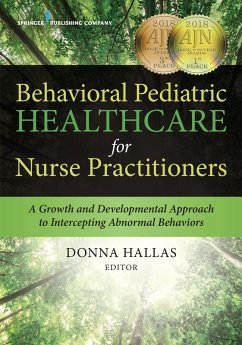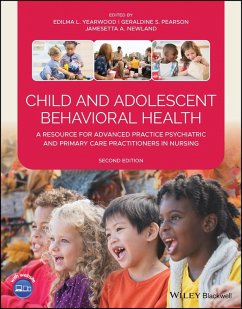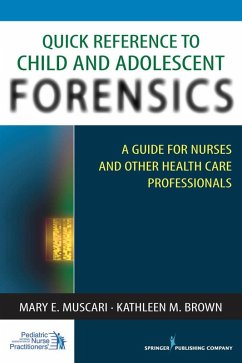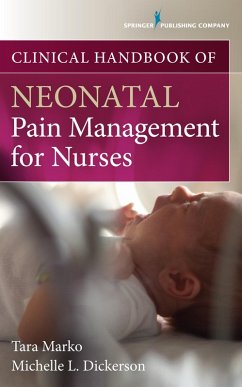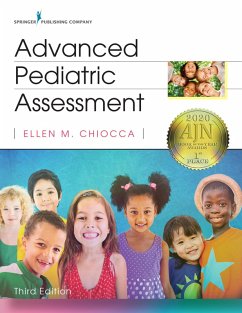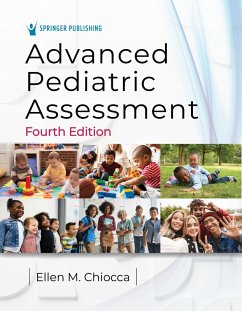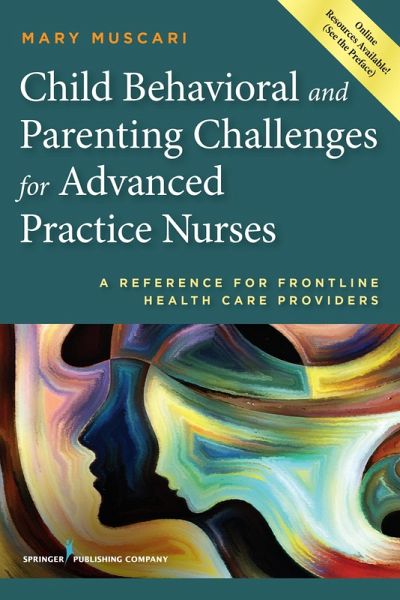
Child Behavioral and Parenting Challenges for Advanced Practice Nurses (eBook, ePUB)
A Reference for Front-line Health Care Providers

PAYBACK Punkte
28 °P sammeln!
Delivers the most comprehensive information available for APNs on dealing with child behavioral and parenting challenges Front-line nurse practitioners are increasingly required to assess, identify, manage, and refer the complex and often significant childhood behavioral challenges occurring among children and adolescents. This authoritative and comprehensive behavior management reference provides nursing health care providers and students with the evidence-based information and strategies they need to identify and appropriately intervene with such behavioral challenges and to assist parents i...
Delivers the most comprehensive information available for APNs on dealing with child behavioral and parenting challenges
Front-line nurse practitioners are increasingly required to assess, identify, manage, and refer the complex and often significant childhood behavioral challenges occurring among children and adolescents. This authoritative and comprehensive behavior management reference provides nursing health care providers and students with the evidence-based information and strategies they need to identify and appropriately intervene with such behavioral challenges and to assist parents in dealing appropriately and effectively with their child.
In an accessible and easy-to-read format, the text examines the primary health care professional's role in screening behavioral issues, identifies a great variety of problems they are likely to encounter, and educates the provider on how to assess difficult and challenging behaviors. Each problem is consistently organized to include a description; assessment: diagnosis; levels of prevention/intervention; primary, secondary, and tertiary strategies for dealing with the behavior; and additional resources. Not only does the book provide a clear indication of when and how to refer the youth to the appropriate mental health professional or other specialist, but delineates strategies for what to do while awaiting referral and how to maintain a primary care role during the psychiatric intervention process. Important legal issues are addressed along with protocols that are accepted by health care and legal agencies. The text also provides an overview of the integration of behavioral health into primary care along with EBP guidelines and parent teaching guides.
Key Features:
Front-line nurse practitioners are increasingly required to assess, identify, manage, and refer the complex and often significant childhood behavioral challenges occurring among children and adolescents. This authoritative and comprehensive behavior management reference provides nursing health care providers and students with the evidence-based information and strategies they need to identify and appropriately intervene with such behavioral challenges and to assist parents in dealing appropriately and effectively with their child.
In an accessible and easy-to-read format, the text examines the primary health care professional's role in screening behavioral issues, identifies a great variety of problems they are likely to encounter, and educates the provider on how to assess difficult and challenging behaviors. Each problem is consistently organized to include a description; assessment: diagnosis; levels of prevention/intervention; primary, secondary, and tertiary strategies for dealing with the behavior; and additional resources. Not only does the book provide a clear indication of when and how to refer the youth to the appropriate mental health professional or other specialist, but delineates strategies for what to do while awaiting referral and how to maintain a primary care role during the psychiatric intervention process. Important legal issues are addressed along with protocols that are accepted by health care and legal agencies. The text also provides an overview of the integration of behavioral health into primary care along with EBP guidelines and parent teaching guides.
Key Features:
- Provides APNs with the basic foundations to understand, identify, and manage significant behavioral challenges of childhood
- Examines the primary care health care professional's role in working with these issues
- Delivers evidence-based information and strategies for assessment and intervention
- Provides clear indication of when and how to refer to appropriate mental health professional or other specialist
- Addresses protocols to follow that are accepted by the health care and legal population
Dieser Download kann aus rechtlichen Gründen nur mit Rechnungsadresse in A, D ausgeliefert werden.




